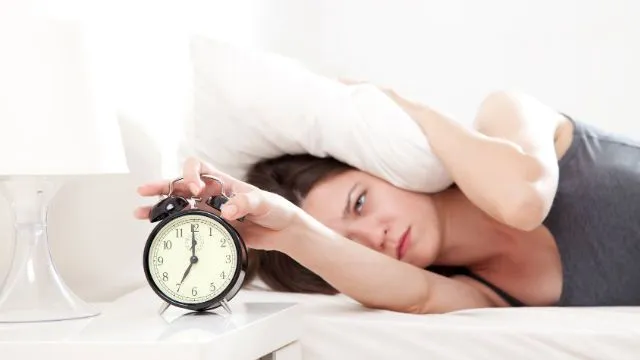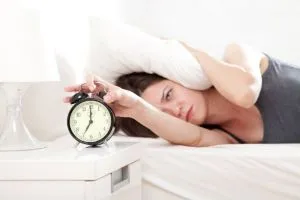
- Share on Facebook12
- Share on Pinterest
- Share on Twitter
One of the most important pillars upholding a healthy lifestyle is consistent quality sleep. It has been estimated that the average adult needs between seven and eight hours of Zs per night, and getting less can wreak havoc on both your physical and mental health.
However, on the flip side of this, did you know that sleeping more than eight hours per night has actually been found to have its own set of dangers? Yup, we’re sorry to have to tell you, but oversleeping comes with some health risks.
According to a new study performed by researchers at the University of Cambridge, sleeping longer than eight hours a night is linked to a higher risk of stroke. In the case of older individuals who sleep longer than eight hours on a persistent basis, stroke risk was found to be doubled.
The researchers derived their results from analyzing just under 10,000 people, all Europeans between the ages of 42 and 81. The participants were followed for just under 10 years, and were given questionnaires on their sleep patterns at key points in the study.
Researchers found that the individuals more likely to sleep for over eight hours per night were older women that were less active. Surprisingly, this was also the group who most often reported sleep less than six hours per night. The individuals who slept for longer than eight hours each night were found to have a 46 percent higher risk of stroke than the average individual.
On their results, the study authors wrote, “this prospective study and meta-analysis identified prolonged sleep as a potentially useful marker of increased future stroke risk in an apparently healthy aging population.”
 Dr. Yue Leng of the University of Cambridge added, “it’s apparent both from our own participants and the wealth of international data that there’s a link between sleeping longer than average and a greater risk of stroke. What is far less clear, however, is the direction of this link, whether longer sleep is a symptom, an early marker or a cause of cardiovascular problems.”
Dr. Yue Leng of the University of Cambridge added, “it’s apparent both from our own participants and the wealth of international data that there’s a link between sleeping longer than average and a greater risk of stroke. What is far less clear, however, is the direction of this link, whether longer sleep is a symptom, an early marker or a cause of cardiovascular problems.”
This is not the first study to associate excessive sleep with health problems. A 2011 study performed in the United Kingdom found that sleeping over nine hours per night may be an indication of an underlying health condition, such as heart disease. Professor Francesco Cappuccio, one of the study’s authors, stated:
“By ensuring you have about seven hours of sleep a night, you are protecting your future health, and reducing the risk of developing chronic illnesses.”
Seven to eight hours does appear to be the magic number, although more research still needs to be done to find out why. To optimize your sleep, check out our tips on supporting the health of your natural sleep cycle. If you find you’re sleeping too late, try going to bed earlier and waking up earlier, as your circadian rhythms might be off if you’ve become a night owl, and may take some time, and early-morning diligence, to get back on track.
However, if sleeping over eight hours a night becomes a habit, and you find it’s happening on a regular basis, it may be time to schedule a consultation with a health professional you trust, to rule out any underlying issues.
-The Alternative Daily
Sources:
http://www.eurekalert.org/pub_releases/2015-02/uoc-soe022315.php
http://www.neurology.org/content/early/2015/02/25/WNL.0000000000001371.short
http://www.cam.ac.uk/research/news/sleeping-over-eight-hours-a-day-associated-with-greater-risk-of-stroke
http://www.eurekalert.org/pub_releases/2011-02/uow-lnc020711.php
- Share on Facebook12
- Share on Pinterest
- Share on Twitter

